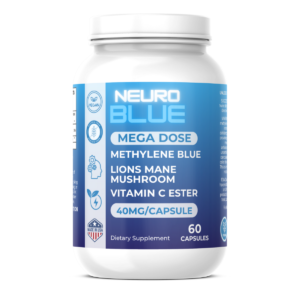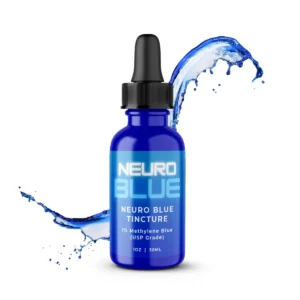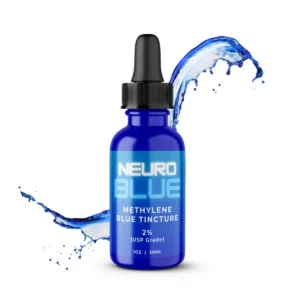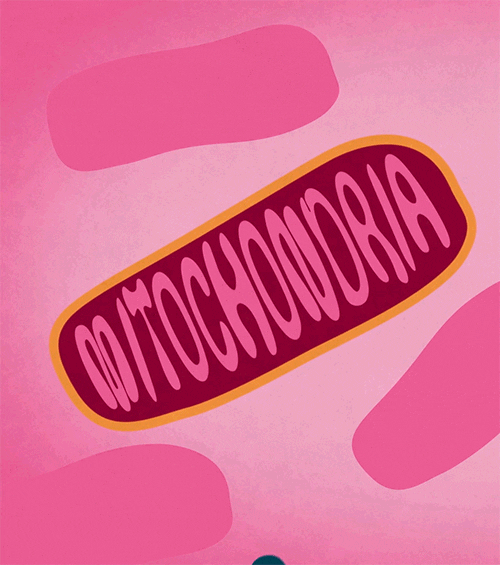
Introduction
The Crucial Role of Mitochondrial Health
Mitochondria, often dubbed the “powerhouses of the cell,” play an essential role in maintaining overall health and wellness. These tiny, unique structures within our cells generate the energy needed for our bodies to function optimally. They convert nutrients from our diet into energy-rich molecules, namely Adenosine Triphosphate (ATP), which fuel countless cellular processes. Therefore, the health of our mitochondria directly influences our energy levels, cognitive function, and overall vitality.
However, like any complex machinery, mitochondria can be vulnerable to damage and dysfunction. Factors such as aging, stress, poor nutrition, and exposure to toxins can impair mitochondrial function. When mitochondria are not working as they should, it can result in fatigue, cognitive decline, and, in severe cases, chronic diseases. Therefore, maintaining mitochondrial health is not just a luxury; it’s an absolute necessity for a vibrant and healthy life.
Methylene Blue: A Connection to Mitochondria
One compound that has been increasingly recognized for its potential in enhancing mitochondrial health is Methylene Blue. Known for its vibrant blue color, Methylene Blue was first synthesized in the late 19th century and has been utilized in various medical applications over the years. Recent scientific research indicates that Methylene Blue, particularly in capsule form, may offer significant benefits for mitochondrial health and function.
A Closer Look at Mitochondria
The Intricacies of Mitochondria and Their Function in Human Cells
Mitochondria are unique organelles within our cells that are chiefly responsible for producing energy. They are often referred to as the ‘powerhouses of the cell’ due to their role in creating adenosine triphosphate (ATP) – the primary energy currency of life.
The process of generating ATP, known as cellular respiration, is incredibly complex. It involves several steps, each of which takes place within the mitochondria. This process begins with the breakdown of glucose, fatty acids, and amino acids into smaller molecules, which are then funneled into the tricarboxylic acid cycle, also known as the Krebs cycle or the citric acid cycle. The products of this cycle are then used to fuel the electron transport chain, ultimately generating ATP.
But mitochondria’s role extends beyond energy production. They are involved in numerous other biological functions, such as regulating cell death, contributing to immune responses, and playing a part in cell growth and differentiation.
The Significance of Mitochondrial Health in Relation to Overall Health and Wellness
Given the pivotal role mitochondria play, it is not surprising that mitochondrial health is intimately tied to our overall health and well-being. For instance, ample energy production from mitochondria is necessary for optimal brain function, physical performance, and even the basic cellular activities that underpin our bodies’ proper functioning. In essence, when our mitochondria are healthy, we feel more energized, alert, and capable of tackling the day’s challenges.
Moreover, mitochondrial health also impacts the aging process. Dysfunctional mitochondria have been linked to a plethora of age-related diseases, including Alzheimer’s disease, Parkinson’s disease, diabetes, and cardiovascular diseases. Consequently, maintaining mitochondrial health could help stave off these diseases and promote longevity.
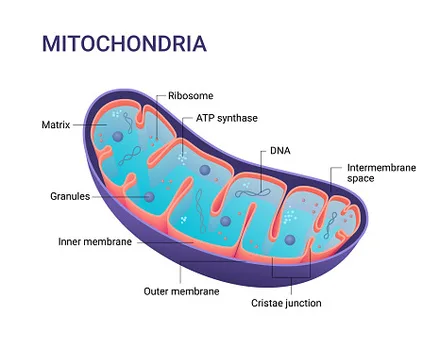
A Discussion on Common Issues Affecting Mitochondrial Function
Despite their crucial importance, mitochondrial function can be hampered by several factors. External influences like poor diet, sedentary lifestyle, chronic stress, exposure to toxins, and even aging can impair mitochondrial function.
Certain diseases and genetic conditions can also directly affect mitochondrial health. For instance, mitochondrial diseases – a group of disorders caused by genetic mutations – can severely impair the function of mitochondria.
Mitochondrial dysfunction can have far-reaching consequences, manifesting as reduced energy levels, impaired cognitive function, and increased susceptibility to chronic diseases. Hence, safeguarding the health of our mitochondria is of paramount importance – a task where Methylene Blue capsules may provide significant support. As we’ll explore in subsequent sections, Methylene Blue’s role in enhancing mitochondrial health offers promising prospects for overall health and well-being.
The History and Uses of Methylene Blue
The Detailed History of Methylene Blue - Discovery, Initial Uses, and Evolution Over the Years
Methylene Blue, also known as methylthioninium chloride, has a long and intriguing history dating back to the late 19th century. It was first synthesized in 1876 by German chemist Heinrich Caro, making it one of the oldest synthetic drugs in medicine. Initially, Methylene Blue was utilized as a dye for textiles, but its medicinal properties were soon recognized.
The first noted medical application of Methylene Blue was in 1891 when Paul Ehrlich, a pioneer in chemotherapy, used it as an antimalarial treatment. Following this, in the early 20th century, the compound was found to have a role in treating urinary tract infections due to its antiseptic properties.
Over the decades, Methylene Blue’s medical applications have evolved and expanded. It has been used in various fields of medicine, such as psychiatry for its antidepressant effects, and surgery as a diagnostic tool.
The Various Medical and Non-Medical Applications of Methylene Blue Today
In the current medical landscape, Methylene Blue is a versatile agent with several applications. Its use in treating methemoglobinemia, a condition where an abnormal amount of methemoglobin is produced, is perhaps its most known medical application. In such cases, Methylene Blue helps in reducing the levels of methemoglobin, hence restoring the normal oxygen-carrying capacity of the blood.
Furthermore, Methylene Blue is used in surgical procedures as a visualizing dye, helping surgeons identify specific tissues or cells. In psychiatric medicine, it continues to show promise as an adjunct treatment for mood disorders.
Recently, the spotlight on Methylene Blue has shifted to its potential role in enhancing cognitive function and memory. Researchers are delving into its potential use for treating Alzheimer’s disease and other neurodegenerative conditions, with promising results.
Beyond the realm of medicine, Methylene Blue finds applications in the fields of aquaculture and aquariums, where it’s used to treat fungal and bacterial diseases in fish. It is also employed in biological research as a staining agent to visualize cellular components.
Now, an increasing focus is on Methylene Blue’s effects on mitochondrial function, especially its ability to promote mitochondrial health and efficiency, which will be explored in detail in the subsequent sections of this article. Given the pivotal role mitochondria play in our overall health, the prospect of using Methylene Blue capsules to enhance mitochondrial function makes this an exciting area of study.
The Science Behind Methylene Blue
Explanation of How Methylene Blue Works on a Molecular Level
To understand the working mechanism of Methylene Blue, we must venture into the intricate world of cellular biology. Methylene Blue acts primarily within the mitochondria, the energy powerhouses of our cells. It operates as a redox agent – a compound that can undergo reduction (gaining electrons) or oxidation (losing electrons).
Specifically, Methylene Blue plays a role in the mitochondrial electron transport chain, a series of reactions vital for energy production in the form of adenosine triphosphate (ATP). The electron transport chain comprises four protein complexes (I-IV), each playing a specific role in the process.
Under normal conditions, electrons pass from Complex I and II to Complex III and IV, ultimately leading to ATP production. However, under certain conditions like aging or disease, this process can be impaired, causing a decrease in energy production and an increase in harmful reactive oxygen species (ROS).
Here’s where Methylene Blue steps in. It has a unique ability to donate or accept electrons, facilitating their transfer within the mitochondrial chain. It aids in bypassing any blocks in the electron transport chain, ensuring a smoother flow of electrons and enhancing the overall efficiency of ATP production. At the same time, it helps to reduce the formation of ROS, protecting cells from oxidative stress.

Overview of the Primary Effects of Methylene Blue on the Human Body
By enhancing mitochondrial function and energy production, Methylene Blue imparts numerous effects on the human body. Primarily, it aids in cellular resilience, helping our cells function optimally even under stress. This property is particularly important in tissues with high energy demands, such as the brain and muscles.
Cognitive enhancement is one of the most exciting effects of Methylene Blue, making it a potential nootropic. Studies indicate that Methylene Blue may improve memory and brain function by increasing brain oxygenation and enhancing mitochondrial efficiency in brain cells.
Moreover, Methylene Blue’s antioxidant properties help protect the body from the detrimental effects of oxidative stress, implicated in various diseases including cardiovascular diseases, neurodegenerative disorders, and even cancer.
Furthermore, Methylene Blue may have potential benefits in enhancing physical performance. By boosting the efficiency of muscle cell mitochondria, it could potentially help in improving muscle strength and endurance.
In summary, the impact of Methylene Blue on mitochondrial function translates to numerous potential benefits for our health and performance, underlining its promise as a therapeutic and performance-enhancing agent. The specifics of using Methylene Blue, particularly in the form of Methylene Blue capsules, to achieve these benefits will be delved into in the following sections.
Methylene Blue: A Mitochondrial Enhancer
Detailed Discussion on How Methylene Blue Affects Mitochondrial Function
Methylene Blue’s impact on mitochondrial function is intrinsically tied to its role as a redox agent in the electron transport chain. Its unique ability to accept and donate electrons aids in the smooth flow of this chain and optimizes the mitochondria’s primary role – energy production in the form of ATP.
The redox properties of Methylene Blue can effectively bypass any impairment in the electron transport chain that could be caused by factors like aging or diseases. The molecule ensures the continuity of the electron transport process, maximizing ATP production and mitigating the generation of harmful reactive oxygen species (ROS).
This dual role – enhancing energy production and reducing ROS – is critical for optimal mitochondrial function. It helps the mitochondria to meet the cells’ energy demands and protects them from the destructive effects of oxidative stress, thereby maintaining cellular health and function.

Review of Scientific Studies Showing the Benefits of Methylene Blue for Mitochondria
Scientific research provides compelling evidence for Methylene Blue’s mitochondrial-enhancing properties. A study published in “Aging Cell” revealed that Methylene Blue could increase mitochondrial complex IV activity, enhancing cellular oxygen consumption rate and improving cell viability under stress conditions.
Similarly, a study in “Antioxidants & Redox Signaling” noted that Methylene Blue helped to maintain mitochondrial function in aging mice, enhancing their physical performance and cognitive function.
Moreover, research in the “Journal of Neurochemistry” demonstrated the protective role of Methylene Blue against neurotoxicity in neurons by boosting mitochondrial respiration and reducing oxidative stress.
These studies reinforce the mitochondrial-enhancing role of Methylene Blue, showcasing its potential in preserving cellular health and function.
Explanation of Why Improved Mitochondrial Function Matters - Link to Increased Energy, Cognitive Function, Etc.
The importance of optimal mitochondrial function cannot be overstated. Mitochondria are often referred to as the “powerhouses” of the cell – they provide the energy needed for various cellular processes. Hence, improved mitochondrial function means increased energy levels, improved physical performance, and enhanced resilience to stress.
Furthermore, better mitochondrial function in brain cells can translate into improved cognitive functions. As we’ve seen from the research, Methylene Blue has potential as a nootropic, enhancing memory and other cognitive functions by boosting brain cell mitochondria.
Moreover, efficient mitochondrial function aids in reducing oxidative stress – a significant contributor to several chronic diseases. By protecting cells from oxidative damage, Methylene Blue helps in maintaining overall health and wellbeing.
In essence, Methylene Blue, particularly in its convenient form as Methylene Blue capsules, presents a promising avenue to enhance mitochondrial function, with far-reaching implications for our health, cognitive function, and physical performance.

Using Methylene Blue Capsules for Boosting Mitochondrial Health
Insights on the Formulation and Manufacturing of High-Quality Methylene Blue Capsules
When it comes to the manufacturing of Methylene Blue capsules, quality assurance is paramount. At Neuro Blue, we prioritize stringent manufacturing standards to ensure that each capsule you consume delivers the maximum possible benefit.
Our Methylene Blue capsules are formulated using pharmaceutical-grade Methylene Blue, which undergoes rigorous testing for purity and potency. It’s then encapsulated in a vegan-friendly casing to make it suitable for all types of dietary requirements.
We also ensure that our capsules are free from unnecessary fillers, binders, and allergens, meaning that you receive nothing but the purest form of Methylene Blue. This meticulous attention to detail in the formulation and manufacturing process provides high-quality capsules that offer optimal mitochondrial health benefits.
Guide on How to Use Methylene Blue Capsules for Optimal Mitochondrial Health
Methylene Blue capsules can be a valuable addition to your daily health regimen. However, correct dosage is crucial for ensuring you enjoy all the mitochondrial health benefits without experiencing any side effects.
As a general guideline, a common dosage for cognitive enhancement ranges between 0.5-2 mg/kg of body weight. It’s recommended to start with a lower dose and slowly increase based on your individual response and needs.
These capsules can be taken with or without food, but for best results, it may be beneficial to take them in the morning or early afternoon to maximize daytime cognitive function. Always remember, it’s important to consult your healthcare provider before starting any new supplement routine.
Safety Guidelines and Considerations for Methylene Blue Use
Discussion of Potential Side Effects or Interactions of Methylene Blue
Like any supplement or medication, Methylene Blue carries a risk of side effects and interactions. While typically safe for use at recommended dosages, potential side effects can include nausea, increased sweating, upset stomach, and changes in urine color.
Furthermore, Methylene Blue may interact with certain medications, specifically those in the SSRI (Selective Serotonin Reuptake Inhibitor) category used to treat depression and anxiety. This interaction can potentially lead to serotonin syndrome, a serious condition characterized by agitation, restlessness, confusion, rapid heart rate, and high blood pressure. Therefore, it is crucial to disclose all medications and supplements you are currently taking to your healthcare provider before starting Methylene Blue.
Tips on Safe and Effective Use of Methylene Blue Capsules
To safely and effectively use Methylene Blue capsules, there are several guidelines to follow:
- Start Slowly: Begin with a low dosage to assess your tolerance and gradually increase if necessary and as recommended by your healthcare provider.
- Consistent Usage: For maximum benefits, maintain a consistent intake schedule.
- Monitor Your Response: Pay attention to your body’s reactions. If you experience any adverse effects, stop taking the capsules and consult your healthcare provider.
- Don’t Overdo It: It’s essential not to exceed the recommended dosage. Higher dosages don’t necessarily equate to better results and can, in fact, lead to unwanted side effects.
Recommendation to Consult with a Healthcare Professional
As with all dietary supplements, it’s recommended to consult with a healthcare professional before starting Methylene Blue. Healthcare providers can assess your individual needs and conditions, allowing for a personalized approach that ensures the supplement’s benefits are maximized while minimizing potential risks. They can provide proper dosage guidelines based on your health status and monitor any potential side effects or interactions with other medications you might be taking.
Remember, your health is your greatest asset. It’s always wise to take a proactive and informed approach when considering new supplements like Methylene Blue.
Conclusion: The Potential of Methylene Blue for Enhancing Health
Recap of Methylene Blue's Impact on Mitochondrial Health and Overall Wellness
The intricate dance of cells and molecules within our bodies is a constant and delicate process. At the center of it all, our mitochondria play a critical role, powering our cells, supporting our body’s systems, and underpinning our overall health and well-being.
Methylene Blue, a compound with a long and fascinating history, has emerged as a significant player in the field of mitochondrial health. It works at a molecular level, enhancing the function of these cellular powerhouses and, in turn, potentially boosting our energy, cognitive function, and overall health.
From its initial discovery and use in the medical field to the plethora of applications today, Methylene Blue’s impressive scope of influence is undeniable. Its potential benefits, as showcased through various scientific studies, make it a fascinating subject in the realms of health and wellness.
Consider Methylene Blue as a Part of Your Health Regimen
We are at an exciting crossroads where ancient wisdom and modern science intersect, offering new ways to enhance our health and optimize our performance. Methylene Blue capsules stand as an embodiment of this intersection. They carry the potential to support our mitochondrial health and by extension, our overall wellness.
However, as we journey towards a healthier life, it’s essential to remember that each one of us is unique. What works for one may not work for another. It is always best to consult with a healthcare professional before incorporating new supplements into your regimen.
As you consider adding Methylene Blue to your health journey, we invite you to think of it not just as a supplement but as a partner, working at the very core of your cells to energize and optimize your health. So, are you ready to tap into the potential of your mitochondria and embark on a path towards enhanced wellness? Methylene Blue could just be the catalyst you need.
-
Favorites
MEGA DOSE CAPSULES (40mg Methelyne Blue + Lions Mane + Vitamin C Ester)
$62.99Original price was: $62.99.$58.99Current price is: $58.99. Add to cart

